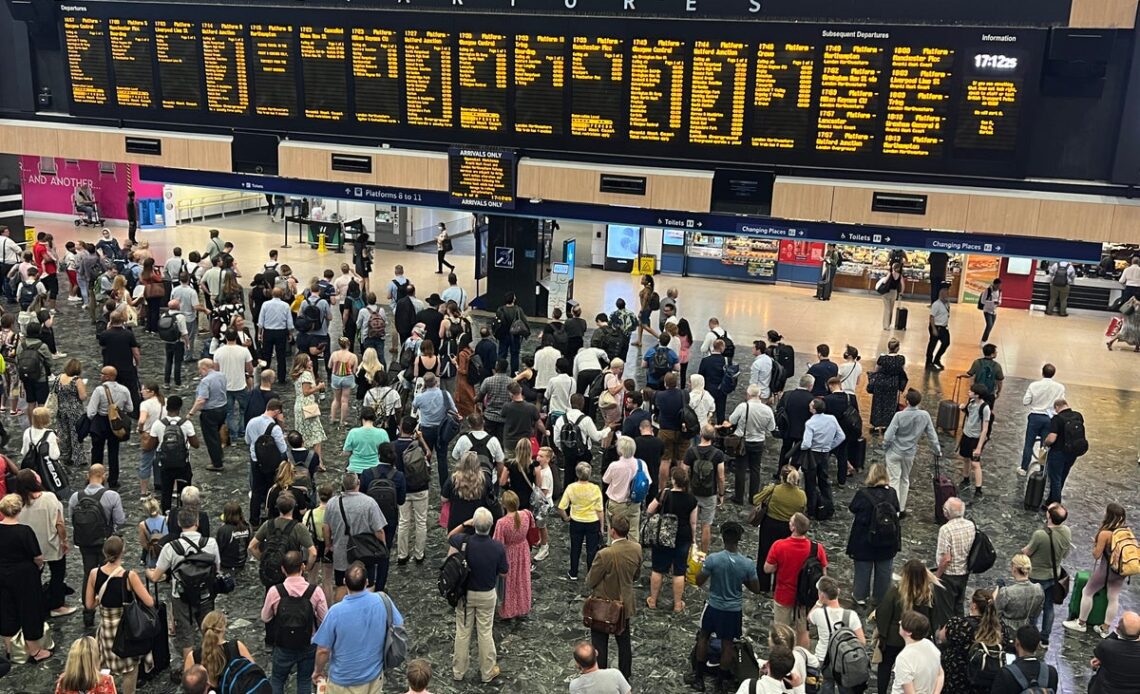Millions of rail passengers face having their travel plans wrecked by two more strikes by train drivers next month.
The Independent understands that the train drivers’ union, Aslef, has given notice to 12 train operators that members will walk out on Saturday 1 and Wednesday 5 October.
The union, which called off a strike due on 15 September immediately after the death of the Queen, is understood not to be making any comment until Tuesday – the day after the state funeral.
But employment law requires Aslef to give employers at least 14 days’ notice of industrial action – which explains why the train firms have been informed.
Half of the dozen train operators are key intercity operators: Avanti West Coast, CrossCountry, GWR, Hull Trains, LNER and TransPennine Express.
In addition, six mainly commuter firms will be affected: Chiltern, Greater Anglia, London Overground, Northern, Southeastern and West Midlands Trains.
David Horne, managing director of LNER – which runs trains on the East Coast main line to and from London King’s Cross – tweeted: “This morning we have been notified by the Aslef trade union of further days of strike action on Saturday 1 October and Wednesday 5 October.
“We have suspended ticket bookings for these dates. We will review our plans and confirm as soon as possible which LNER services will run on these days.”
Drivers are involved in a long and bitter pay dispute with their employers, the train operators. When announcing its later-postponed 15 September strike, Aslef said: “Most train drivers haven’t had a pay increase since 2019. When inflation goes up and pay doesn’t, that’s a real-terms pay cut.
“Senior managers in our industry take home huge salaries; rail operators have paid dividends to their shareholders right through the pandemic, and the rolling stock companies (who own the trains and lease them back out) have made billions.
“The claim that there’s no money left to pay rail workers properly is just not true.
“During the pandemic, train drivers went out to work to keep the country moving. Rail helped other key workers get to work, and kept goods like food and medicines moving around the country.”
Aslef, as well as the larger rail union, the RMT, insists that the Department for Transport (DfT) is pulling strings and preventing the operators from making pay offers that would approach the current rate of inflation – almost 10 per cent.
The DfT says negotiations are a matter for the unions and…
Click Here to Read the Full Original Article at The Independent Travel…
